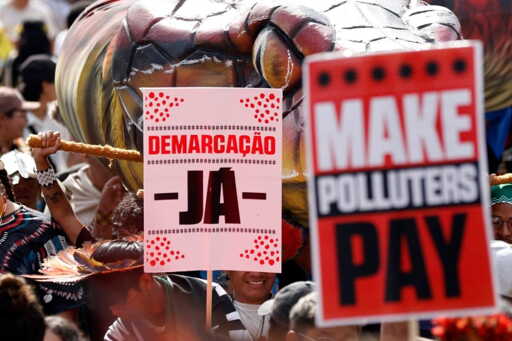BELÉM, Brazil — In April 2026, a new summit in Santa Marta, Colombia, promises to advance on one crucial point the U.N. climate summits have been failing to address after 30 editions: planning the transition to a world without fossil fuels. An action plan for a phaseout was once again left out of COP official outcomes in the Amazonian city of Belém, which held the event for two weeks ending Nov. 22. Although Brazil spearheaded a road map to move away from planet-warming fossil fuels, it was never included in the official agenda — despite expectations following COP28’s call for a transition. Brazil hosted COP30 with high promises despite its scaling environmental contradictions, such as green-lighting the exploration of oil on the Amazon coast weeks before the event. However, the Belém summit was presented as the “implementation COP” and the “COP of the truth” in official banners. In a powerful opening speech, Brazilian President Luiz Inácio Lula da Silva first launched the road map proposal. “We need road maps that will enable humankind, in a fair and planned manner, to overcome its dependence on fossil fuels, halt and reverse deforestation and mobilize resources to achieve these goals,” he said. Lula’s speech was within the spirit of mutirão, which initially took over negotiations in Belém. The Portuguese word with roots in the Indigenous language Tupi-Guarani means making a “collective effort” to achieve concrete results. Brazilian President Luiz Inácio Lula da Silva, with COP30 President André Corrêa do Lago on his left and…This article was originally published on Mongabay
From Conservation news via this RSS feed


